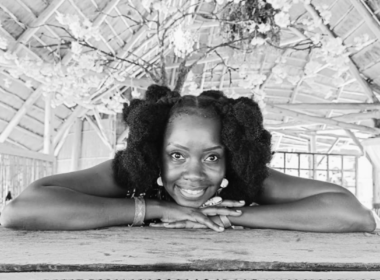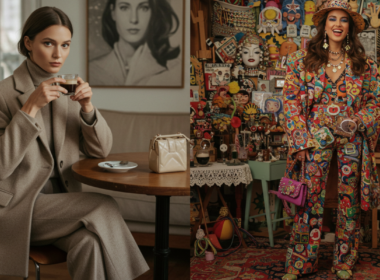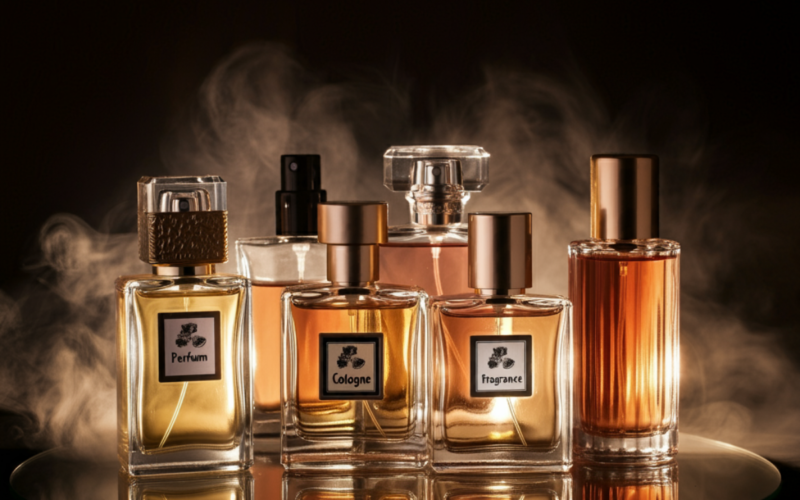It’s been a transformative year for Nigerian designer Ifeanyi Nwune. Beginning with a celebrated showcase in Paris that introduced his distinctive approach to the international fashion world, Ifeanyi has steadily pushed the boundaries of African-inspired design through his brand, I.N Official. From his Paris capsule collection “UMIN,” a collaboration with his cousin and renowned stylist Ugo Mozie, which featured West African textiles like aso-oke and intricate Benin brass accents, to a recent high-profile collaboration with Glenfiddich, Ifeanyi has expanded his creative reach into lifestyle, leaving a mark beyond fashion alone.
Now, with the debut of his latest collection, Nirvana, Ifeanyi brings a fresh perspective to the forefront. Nirvana embodies a serene sophistication, seamlessly blending African heritage with contemporary design. Each piece is crafted to evoke a sense of calm and timelessness, representing a new chapter for IN and capturing Ifeanyi’s evolving vision of elevated, narrative-driven fashion.
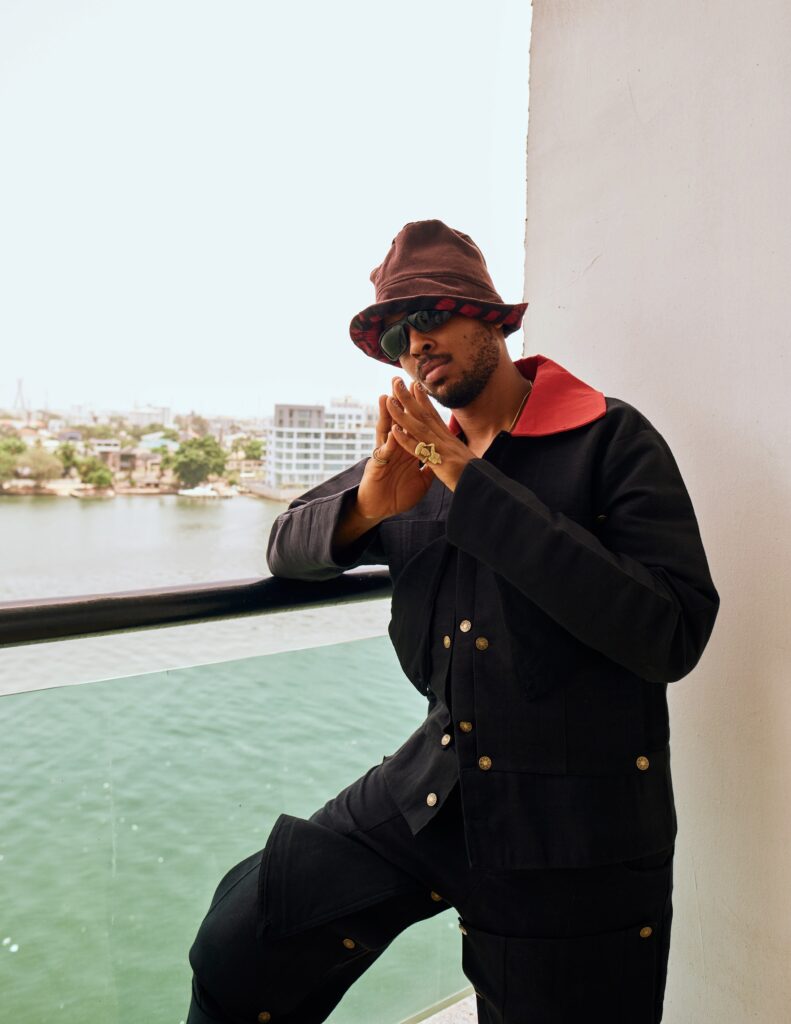
FAB: Can you tell us more about the story behind the Nirvana Collection? How did your personal experiences and Nigerian heritage influence the designs?
Ifeanyi Nwune: The Nirvana collection is basically about the black Utopia. The imagination of an alternate universe where everything is perfect for black people, there’s black privilege at play, and black people know who they are. History is just in reverse; that’s what this is about. It’s about creating the highest version of black people’s drip.
FAB: You mentioned that Nirvana is inspired by spirituality and self-discovery. How do you channel those themes into the pieces?
Ifeanyi Nwune: Most importantly, it is heritage and knowing the roots of where we’re from. Knowing the roots of where we’re from naturally makes us spiritually connected to the pieces. We are not one of those brands making pieces in some random country. We create pieces that resonate with our ancestors, honouring the techniques they used. How? By transforming their traditional styles to make them relevant for today.
FAB: Your cousin Ugo Mozie served as the muse for this collection. What aspects of Ugo’s personality or style inspired you the most in creating these designs?
Ifeanyi Nwune: Well, a lot, to be honest, just like the clean style. We both have similar aspirations because he’s one of my inspirations, for sure. Clean styles, things like Michael Jackson, inspirations, and things that we have in common. So, I’ll say his personality definitely inspired me to an extent. But he didn’t design any of the pieces or anything.
I designed the entire collection, but his personality and his vibe definitely rub off on the aura of the collection, the same way mine rubs off on his. We’re brothers and learn from each other as much as possible.
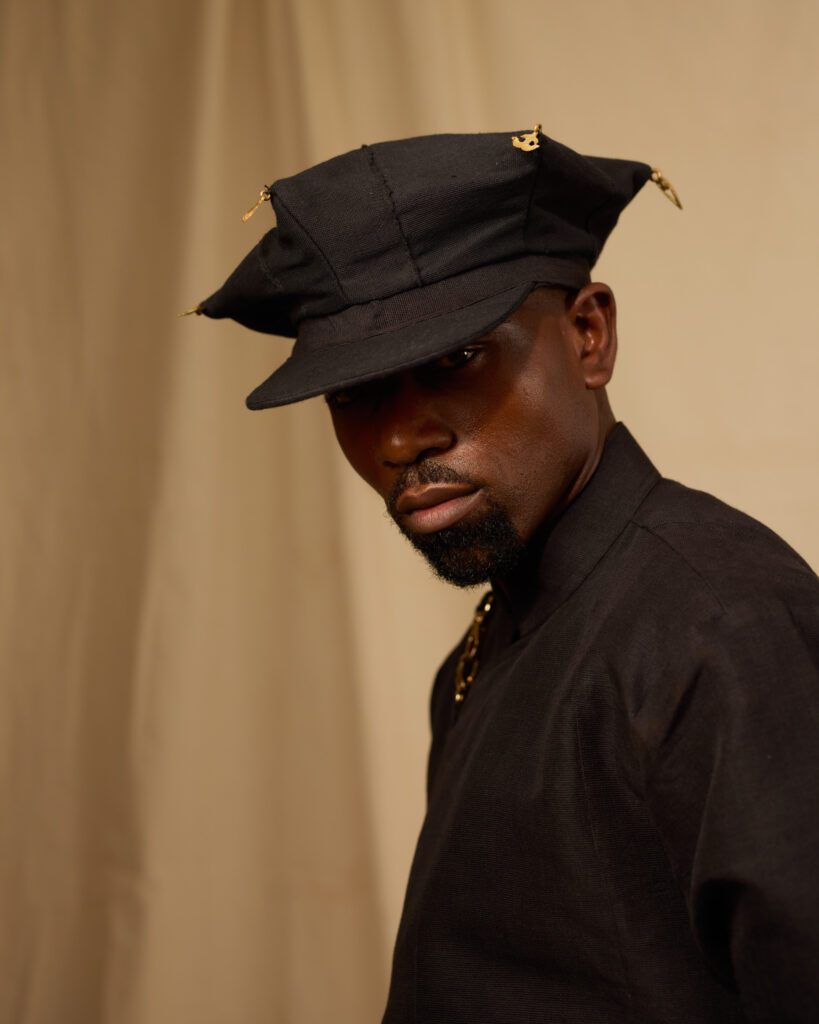
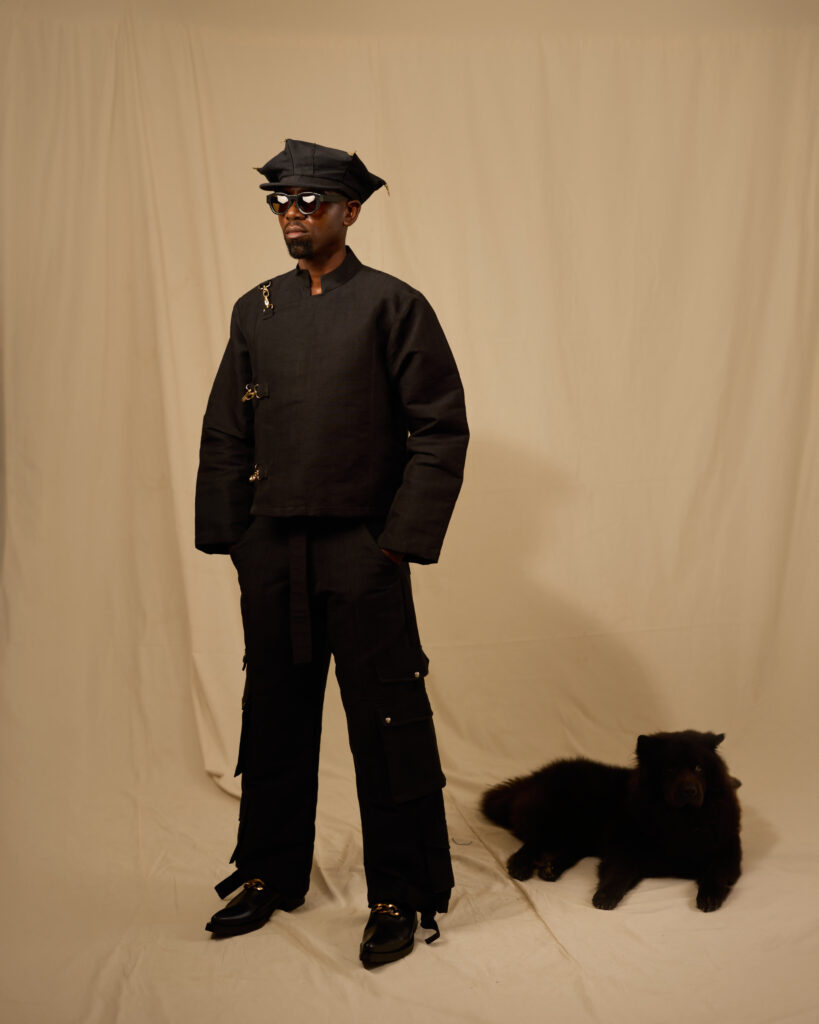
FAB: With the Nirvana Collection, you emphasised sustainability using organic fabrics like Aso Oke and linen. What inspired your focus on sustainability, and how do you think this will impact the fashion industry in Nigeria?
Ifeanyi Nwune: Sustainability was because I was trying to build a business that could scale and get investors to be more interested in it. Possibilities are very important in any sector, especially in an economy. It just made sense to make sure it’s part of our ethos. The fabric we use is made by artisans here. We feel like giving back is the best form of sustainability because that way it never ends. We just look to transform that as much as possible and get the most rewarding way to make a sustainable brand. But we are slowly getting into it; it definitely is even a bit more expensive to do, but overtime, I think it pays off more. And it just shows more consciousness in making the pieces.
From Kanye West to Benin: Inspirations Behind the Nirvana Collection
FAB: One of the jackets in the collection draws inspiration from Kanye West’s Pastelle brand. How has Kanye’s influence shaped your approach to fashion design, and why did you choose to incorporate elements of Pastelle?
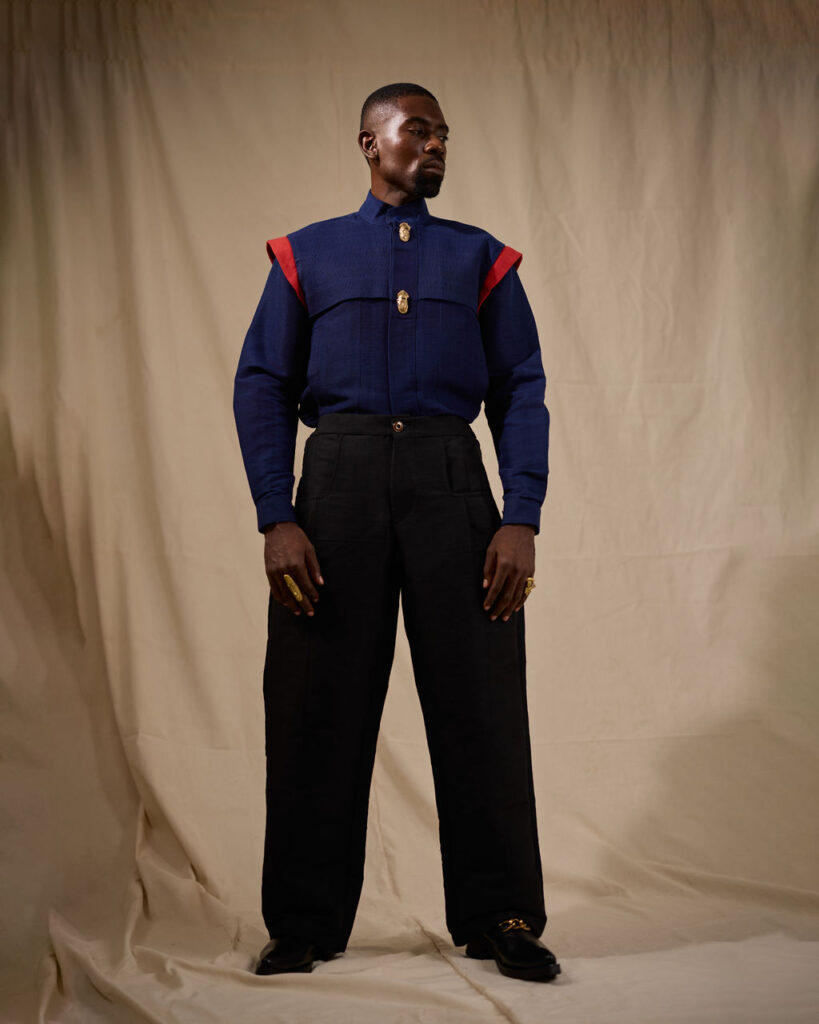
Ifeanyi Nwune: For me, Kanye’s influence is all about his radical approach to design. He’s not traditionally a designer, but he has this way of imagining things that make his life easier and then just creating them. Pastelle was a cool brand, but the jacket itself was inspired by both Pastelle and Michael Jackson’s Thriller look, especially the bold shoulders of Michael’s iconic jackets. Kanye’s impact comes from his willingness to be spontaneous and take risks before anyone else. That’s something we strive for too. To just lead the trend and not jump on a trend.
FAB: Textures and earth tones play a key role in the Nirvana Collection. How do you select materials that align with your vision, and what role does texture play in conveying the collection’s narrative?
Ifeanyi Nwune: For us, texture has a lot to do with comfort. We take a lot of pride in making sure pieces are comfortable and cosy. So when we make a piece and it’s so beautiful and it’s itching on the inside, we’re not happy. We are taking this piece back and figuring out how to make the inside perfect and cosy for you. We know for a fact that clothing has to be cosy to be comfortable and enjoyable.
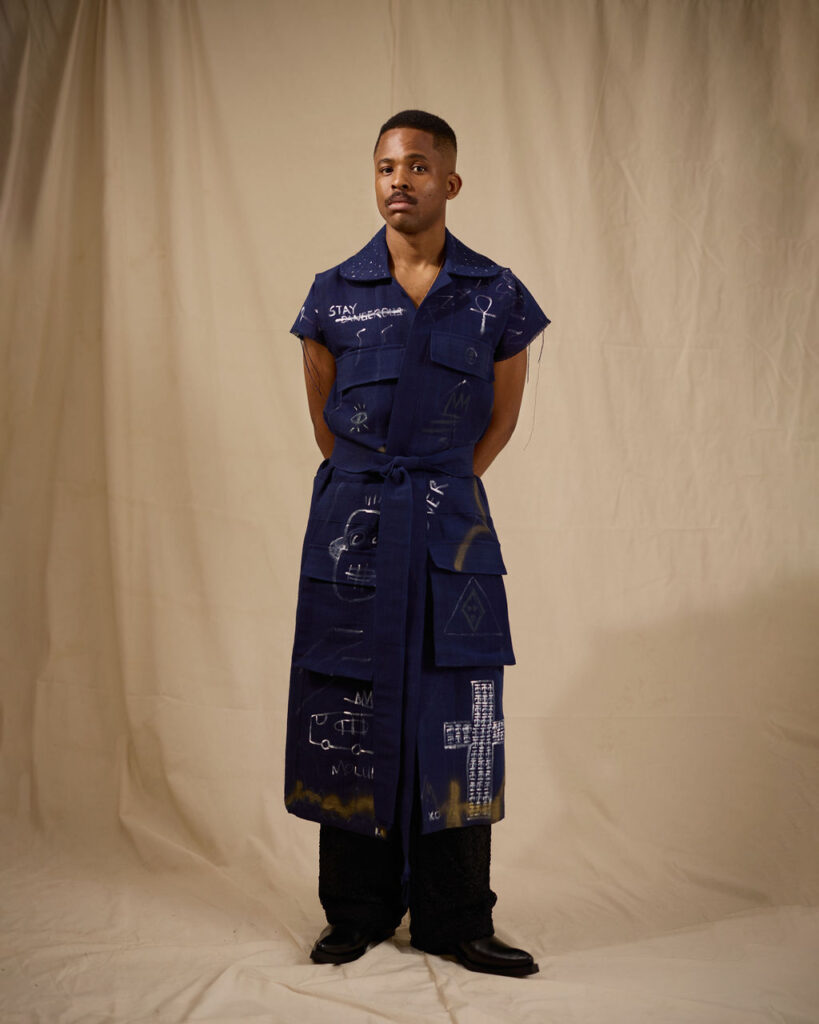
How Ifeanyi Nwune’s IN Brand Redefines African Fashion Globally
FAB: The Nirvana Collection is also a journey toward enlightenment and serenity. How do you think fashion can serve as a medium for personal or collective transformation?
Ifeanyi Nwune: I think expressions in general are beyond fashion. Expression on being able to show how you feel internally in the best possible way and creating the best possible way is a blessing in every way, and everyone should explore it as much as possible. Fashion in itself transforms everyone’s life because you can just be anyone you want at any day. You know, you can be a superhero, a gangster, a doctor, a mechanic, a madman, a dancer, or anything.
I remember someone who threw a net on me, and I was so pissed off, but then I remembered that his outfit was chaotic. You can be whatever you want to be just by how you dress; that’s what fashion does to you. It’s you having to dress how you feel. I remember the other day we did an event and everyone was dressed like drip, but I wore a suit and tie. Everyone was like, Why am I wearing a suit and tie? But that’s how I felt. I think it’s just important to be able to express yourself, especially how you feel at that time.
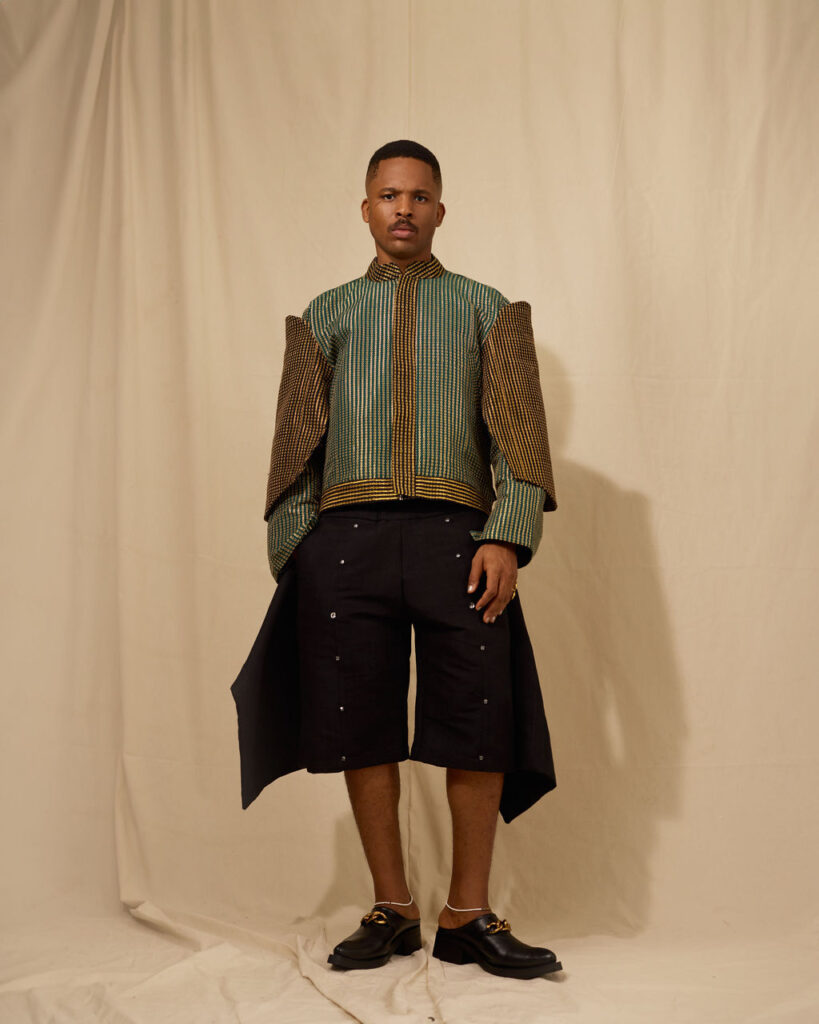
FAB: How has your brand, IN, evolved since its inception, and how do you see it evolving in the future with the launch of the Nirvana Collection?
Ifeanyi Nwune: I see us expanding by hiring more young talent and building a larger office. Recently, we were inspired by a project in Benin where a free trade zone was established, allowing for tax-free clothing production in a multimillion-dollar factory. We’re working with the government to implement similar policies that support sustainable production, enabling designers to operate more sustainably. We’re advocating for state and federal governments to create policies that empower designers to build sustainable businesses. The fashion industry has already changed many lives, and it’s important we take it seriously. Over the next few years, I envision IN growing significantly while also helping other emerging designers navigate and develop their own brands.
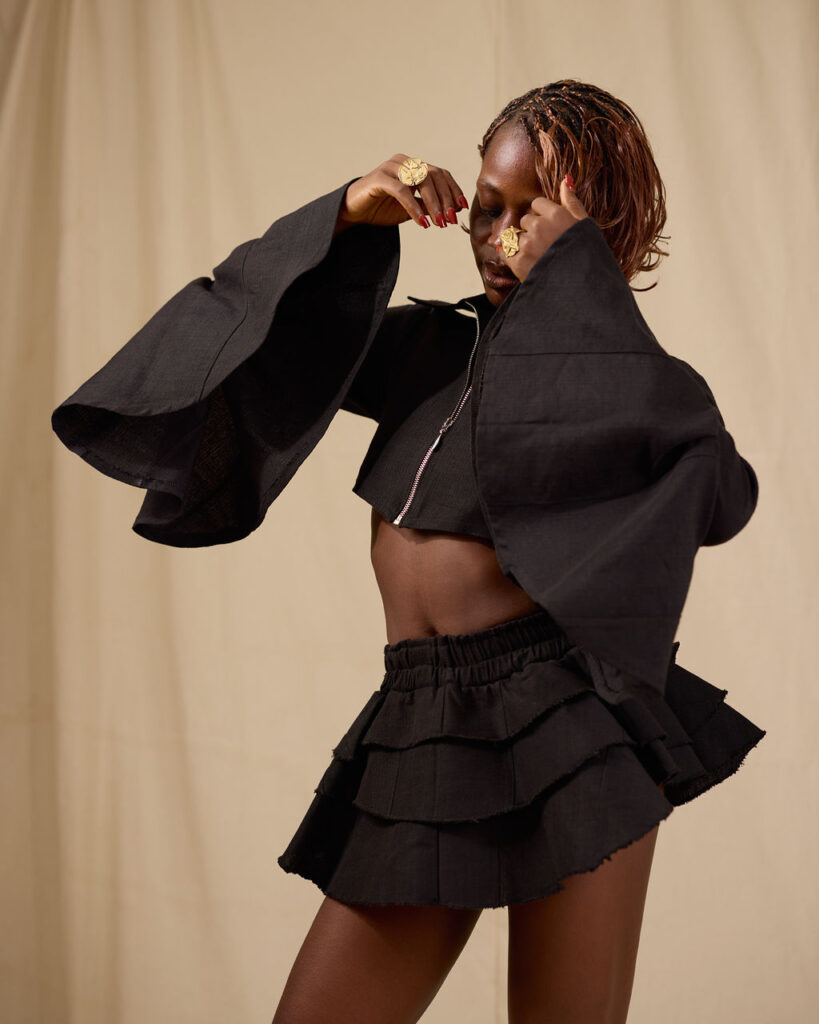
FAB: At 12, you had a near-death experience that changed your perception of life. How do moments like these influence the philosophy behind your brand and the messages in your designs?
Ifeanyi Nwune: That experience transformed my outlook completely. It reminded me that life is fragile—you can be enjoying yourself one moment and gone the next. That’s why I prioritise doing what I genuinely want, like taking time to rest or sleep, because I’m living for myself, not for anyone else. Another realisation I had was that, when you die, life goes on without you. When I moved to LA, I noticed how people continued with their lives, pursuing their goals, and no one even noticed I was gone. It reinforced that everyone eventually moves on.
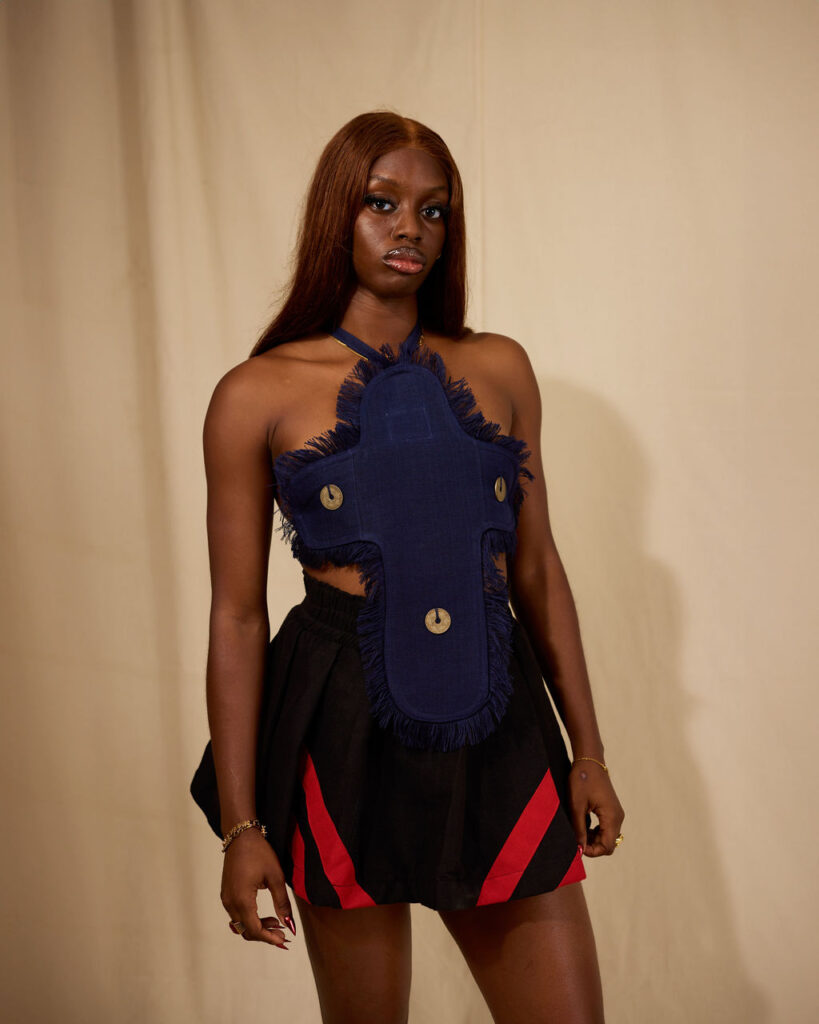
This understanding drives me to live each day as if it’s my last—doing as much as I can, resting, and then giving my best the next day. It’s become part of my life philosophy, and I’m trying to bring more discipline to it. I also see life through a more ethical lens; that’s the effect of such an experience.
I’m grateful to have a smart, capable team that keeps the business running smoothly. In tough moments, I believe it’s essential to find strength, because these challenges shape who we are and make us better. Sometimes, it takes going through something intense to truly grow.
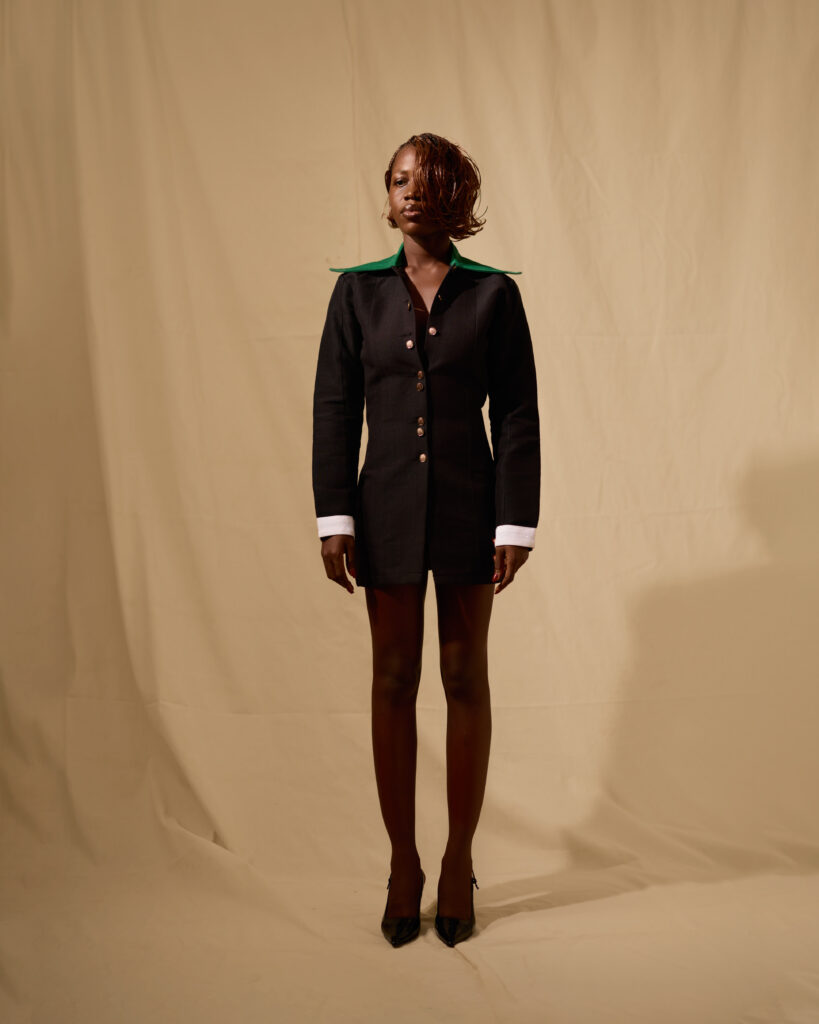
Fashion, Film, and Music
FAB: As a multi-talented individual with experience in music, fashion, and film, how do you integrate these different artistic mediums into your work as a fashion designer?
Ifeanyi Nwune: I see them as part of the same creative industry because they share the same community. The people you see at a music event are the same ones at film premieres, fashion shows, and art exhibitions. We all frequent the same clubs and creative spaces where these worlds naturally intersect. Take my friend Danny, for example. He loves fighters, yet he finds himself in the same circles as fashion and film people.
These fields are deeply interconnected, and each supports the others, sometimes without even realising it. I think it’s important to be conscious of the line that connects everything. As long as you’re at the top of your game, you’ll find respect and involvement across all these industries. They’re all about expressing art, and I believe that, done right, each medium enhances the others.
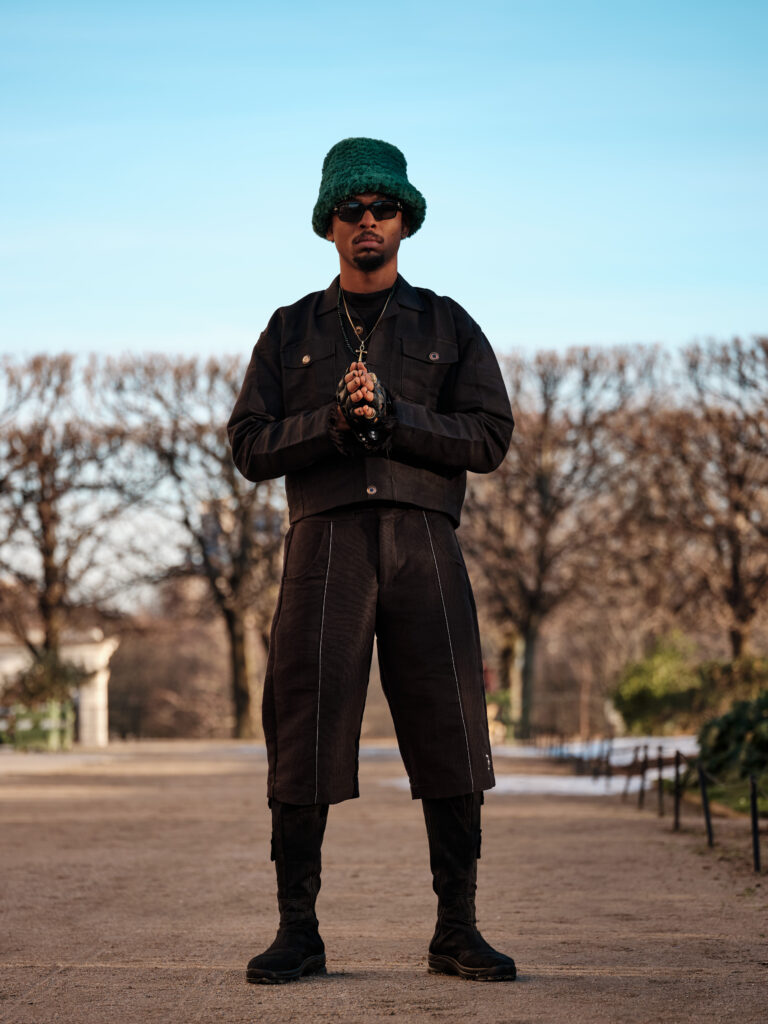
FAB: In what ways do you think your new collection will contribute to redefining contemporary African fashion on a global scale?
Ifeanyi Nwune: I believe it’s about staying authentic and inspiring future designers to honour their heritage while designing for a global audience without compromising their identity. Our work should serve both our people and a greater purpose. I also hope to drive change within our communities and government. Right now, the creatives involved in government are often just politicians claiming to be creative. My goal is to find ways to bring genuine creatives into influential roles to make a real impact.
Additionally, I see more opportunities for collaboration. Many people are working in isolation, especially in music. Imagine the growth if Afrobeat artists like Burna Boy and Wizkid toured together or included more artists on their tours. These collaborations would amplify the movement on a global level. By working together, we can make a stronger cultural impact and elevate African artistry on a larger scale.
Ifeanyi Nwune: There’s a lot I want to share—my life, my philosophies, and the experiences I call “cheat codes.” I believe there are moments in life when we should act, speak, or think in specific ways, but often we hold back. Embracing these moments could make life better. I’ve been writing down my thoughts and ideas in notes. Though I sometimes struggle with laziness, I know that over time, everything will come together. I don’t rush the process, but I’m determined to share what I’ve learned. I don’t read as many books as I’d like, but I have a lot to say, and that’s my main goal.

